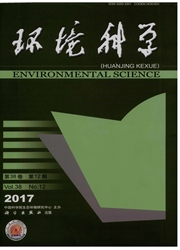

 中文摘要:
中文摘要:
在实验室模拟条件下,研究了铁还原菌Geobacter sulfurreducens对汞的甲基化作用及其影响因素.结果表明,G.sulfurreducens在低浓度汞溶液中能够生长,但生长受到一定程度的抑制,主要表现在菌株生长曲线迟缓期的延长.G.sulfurreducens在生长过程中能同时将溶液中无机汞转化为甲基汞,甲基化过程受多种环境因素的制约.在初始HgCl2浓度为1 mg.L^-1、温度35℃、pH 6.0、0.9%盐度的厌氧环境条件下,G.sulfurreducens对汞的甲基化率可达38%.适当增加HgCl2初始浓度与盐度能提高甲基汞的转化率,但过高汞浓度和盐度会造成微生物的死亡;温度在4~35℃范围内,温度越高甲基汞转化率越高;弱酸性环境比酸性或中碱性环境更利于汞的甲基化.此外,腐殖酸和半胱氨酸等均影响甲基汞的转化效率,其中腐殖酸对汞甲基化有一定的抑制作用,而半胱氨酸有较强的促进作用.该研究为自然水体生态系统中铁还原菌参与汞甲基化的过程提供了直接证据.
 英文摘要:
英文摘要:
Mercury methylation by Geobacter sulfurreducens and the effects of environmental factors were studied under laboratory conditions.The results showed that G.sulfurreducens could grow well in the presence of low concentrations of mercuric chloride,but its growth was inhibited to a certain extent,mainly expressed in the prolonged lag phase.G.sulfurreducens could transform inorganic mercury into methylmercury,and this process was affected by many environmental factors.The efficiency of mercury methylation reached 38% under anaerobic conditions with 1 mg·L^-1 HgCl2 and 0.9% salinity at 35℃,pH 6.0.Increasing the initial HgCl2 concentration or salinity in an appropriate manner improved mercury methylation,but the concentration of methylmercury reduced when the concentrations of HgCl2 and salinity were too high.The efficiency of mercury methylation increased with the increasing temperature in range of 4-35℃.Weakly acidic environment was more beneficial to mercury methylation than acidic,neutral or alkaline conditions.In addition,the efficiency of mercury methyaltion was also affected by humic acid and cysteine.Humic acid inhibited mercury methyaltion,whereas cysteine could improve the efficiency of mercury methylation.This study provided a direct evidence for mercury methylation mediated by iron-reducing bacteria in the natural aquatic ecosystem.
 同期刊论文项目
同期刊论文项目
 同项目期刊论文
同项目期刊论文
 期刊信息
期刊信息
